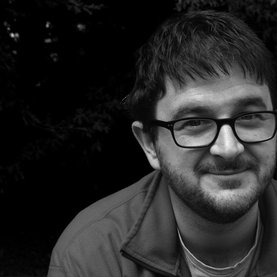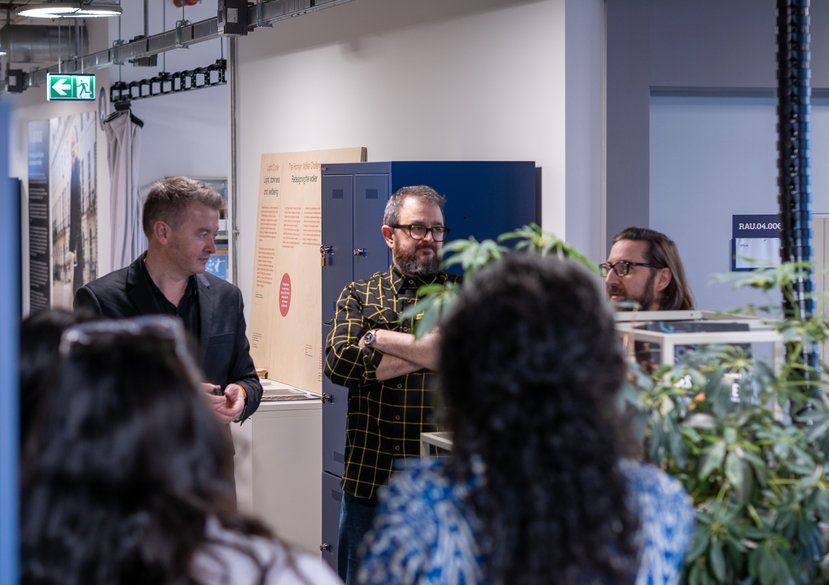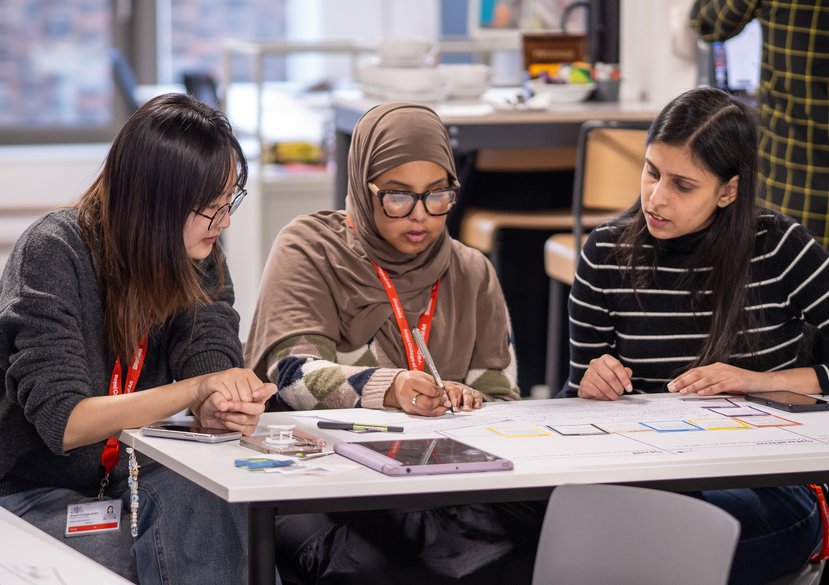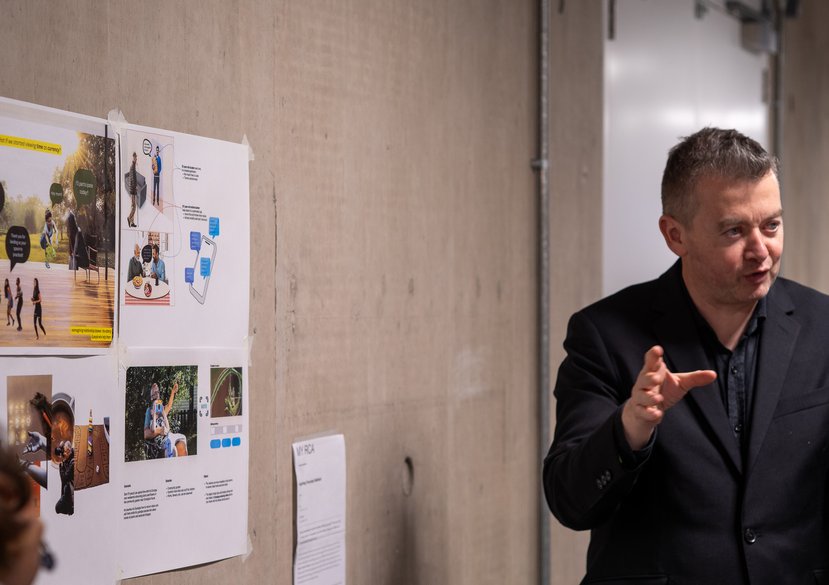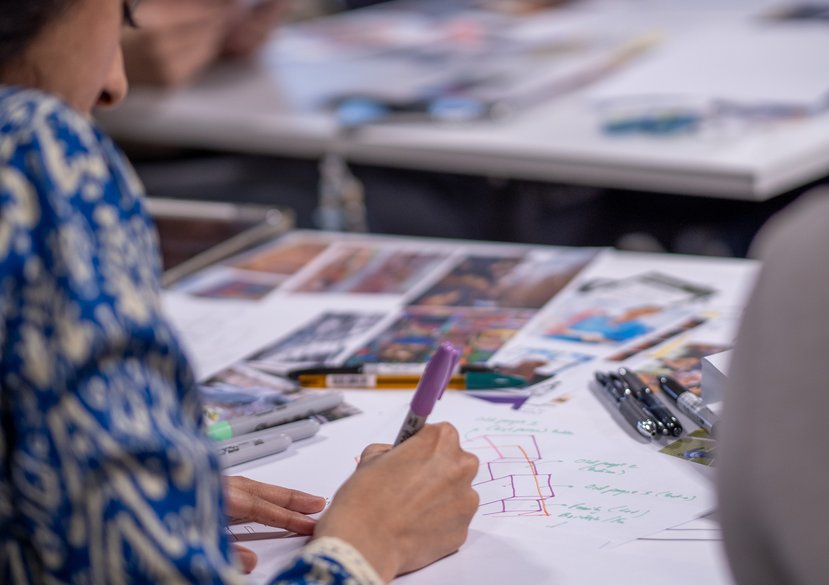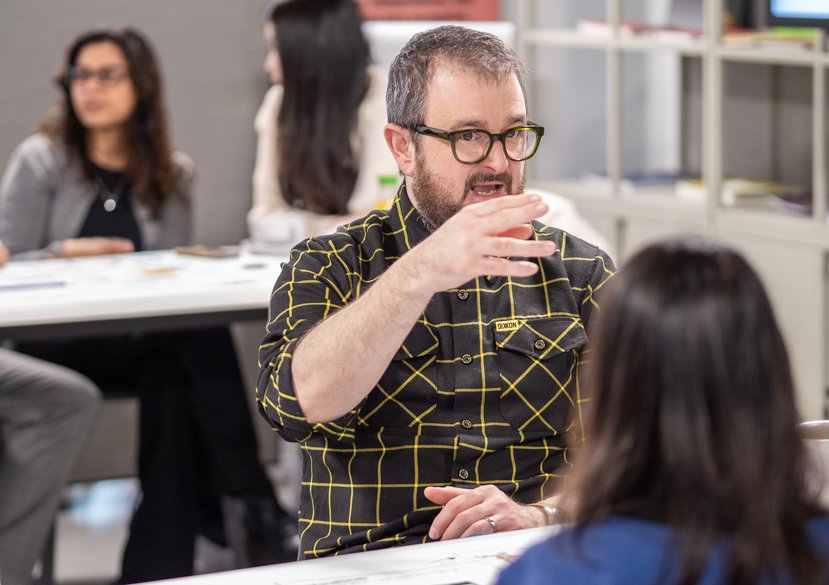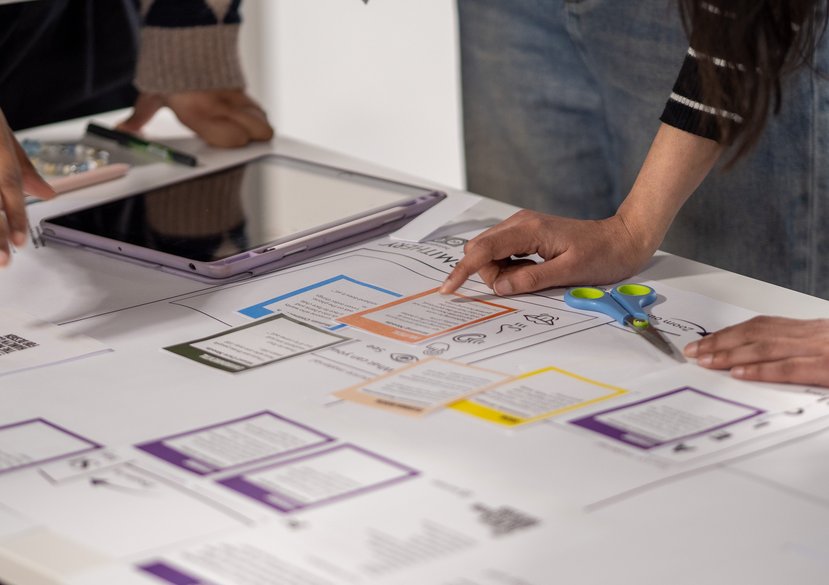
Discover how to use design futures methods and tools to unlock new thinking and transform strategic uncertainty into innovative opportunities for your organisation, industry sector or community.
Key details
Fees
- Early Bird Fee: £1,250 until 13 April
- Regular Fee: £1,450 from 14 April
Dates
-
Monday 7 July – Wednesday 9 July, 9.30am – 5.30pm BST daily
Optional open studio until 7pm Tuesday 8 July
Location
-
Royal College of Art
Rausing Research & Innovation Building
15 Parkgate Road
Battersea
London SW11 4NL
Are you caught in the headlights of complexity? Struggling to see beyond the immediate horizon, or reliably identify emerging trends? With so many pressing problems, it can sometimes seem counterintuitive to focus on the future. Yet productive futures work is not some far-off fantasy experiment. It is a strategic investment in time, collaboration and understanding that will underpin transformative decision-making today.
For over a decade, the Royal College of Art has been a leader in design futures research and practice, and today offers a one-year MDes in Design Futures. Now we are looking to create more opportunities with this Futures Through Design short course. This in-person, intensive three-day experience is designed for organisational leaders, entrepreneurs, professionals and high-performing recent graduates who are seeking to transform strategic uncertainty into innovative opportunity. Participants will learn advanced design methodologies to anticipate, map, and use complex future scenarios to affect change across your organisation, industry sector or community.
Through hands-on engagement with futures thinking tools and techniques, you will develop new approaches to strategic innovation that can be immediately applied in your professional context.
About the course
Course structure
Module 1: Seeing the world
Focuses on introducing design futures methodology through interactive exercises. Participants learn different techniques to scan the world around them for signals of change. Key activities include street scanning, understanding information as a material, and exploring Three Future Frames (Scenarios, Situations, Stuff). The day culminates in teams building a collective signals database around a common theme.
Module 2: Situating Futures
Emphasises translating signals into concrete scenarios and situations. Participants develop scenarios describing a potential world seven to ten years ahead, then use imaginative exercises to embody these scenarios physically. They employ service design methods to explore future environments, create short performances representing their scenarios, and analyse key objects and props as windows into potential futures.
Module 3: All Futures Are About the Present
Centres on synthesising learning and understanding the practical applications of design futures. Participants prepare and deliver presentations of their developed projects to a panel. The day includes a guest speaker, a seminar on the purpose of design futures, and a structured reflection on how these methodologies can be applied in participants' own organisational contexts.
The course concludes with RCA certificate presentation and networking.
What will you learn?
This course reveals how design futures methodologies can help you move swiftly between seeing, sensing, and making modes – essential capabilities for leading organisations through uncertainty. By the end of the course, the global mix of participants attending will have gained an end-to-end toolkit for navigating uncertainty and translating insights into actionable organisational strategies.
How will you learn?
Situated in London at the RCA Battersea Campus, the course combines theoretical frameworks with hands-on practical techniques. Participants will engage in immersive exercises using tools like:
- society, Technology, Environment, Economics, Politics, and Values (STEEPV) analysis
- scenario planning
- design fiction to build capabilities in speculative thinking and strategic imagination.
Offering examples of real-life case studies and interaction with RCA academics, John V Willshire and Dr Robert Phillips, who teach on the Design Futures MDes postgraduate degree programme. Joined by guest speaker, Gem Barton, Senior Tutor, superFUTURES platform and Reader in Design Pedagogy.
Who should attend?
The course is particularly valuable for leaders in rapidly changing sectors seeking to develop resilience, innovation capacity, and strategic foresight. It is also open to graduates and designers who want to learn or update their knowledge about design futures work and its impact.
We encourage participants from all backgrounds but this course could be particularly valuable for people from the following professions:
- Innovation and Strategy Directors
- Business Development and Transformation Leaders
- Design and Creative Directors
- Policy and Planning Directors
- Senior Management Consultants
- R&D and Foresight Managers
Why now?
The capacity to imagine the future is crucial to any society; it is not about looking forward, but understanding ourselves and our place in history. Events over the last few years have dramatically shown us how volatile our present is – an increasingly unstable world makes the ability to imagine the future even more relevant.
Futures through design is about imagining, envisioning, building and critiquing possible futures, encouraging wild speculation balanced by rigorous research. We deconstruct the past, break down the present, and shape the objects and entities waiting in the wings of the worlds to come, all to inform our decisions in the present.
Why the RCA?
The Royal College of Art has been the platform upon which generations of leading academics, industry experts and ground-breaking students have continually created new ways to unseat the present, rather than makes claims about predicting the future. For over a decade, the RCA has been a leader in design futures research and practice, and today offers a one-year MDes in Design Futures.
Admission criteria
Participants must:
- have an undergraduate degree
- have a good level of English language
- be 21 years old or over.
Course team
Gallery
Contact us
Get in touch with us if you'd like to find out more about this or any of our other short courses.
[email protected]

